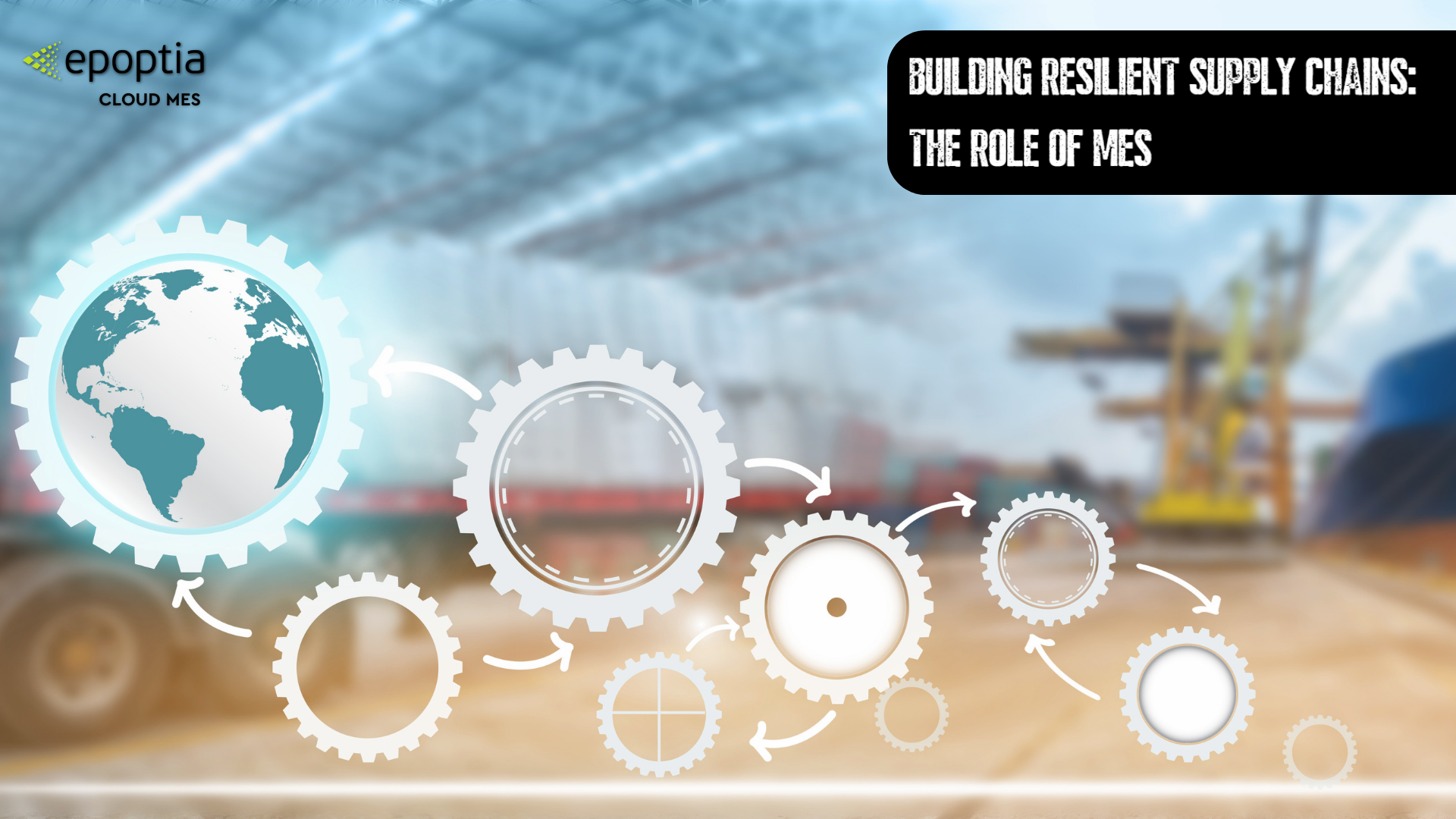Learn how to build resilient supply chains and overcome disruptions
In the dynamic landscape of modern manufacturing, the ability to build resilient supply chains is paramount. Manufacturers face various disruptions, from natural disasters to geopolitical uncertainties. In this context, Manufacturing Execution Systems (MES) emerge as powerful tools, providing strategies to enhance supply chain resilience.
Understanding MES in Supply Chain Resilience
Firstly, it’s essential to comprehend how MES contributes to the supply chains being more resilient. MES acts as a central nervous system, offering real-time visibility into production processes, inventory levels, and order statuses. This visibility allows manufacturers to identify potential disruptions early on and respond swiftly.
Real-Time Monitoring and Early Detection
MES enables real-time monitoring of the entire production process. By leveraging IoT devices and sensors, manufacturers can gather data on equipment health, production rates, and environmental conditions. This data is then analyzed in real time, providing early detection of any anomalies or potential disruptions.
Dynamic Production Planning for Adaptability
Furthermore, MES supports dynamic production planning. Traditional supply chain models often involve static plans that might crumble in the face of unexpected events. MES, on the other hand, allows for agile and adaptive production planning. Manufacturers can adjust schedules, allocate resources efficiently, and reroute production to alternative facilities, ensuring continuity in the supply chain.
Inventory Optimization and Demand Forecasting
Moreover, MES aids in inventory optimization, a crucial aspect of resilience. By integrating it with inventory management systems, manufacturers can ensure optimal stock levels. Additionally, MES facilitates demand forecasting through data analytics, allowing for a proactive response to fluctuations in demand and minimizing the risk of stockouts or overstocking.
Collaborative Supply Chain Ecosystems
In the pursuit of supply chain resilience, collaboration is key. MES fosters collaboration by creating interconnected ecosystems. Suppliers, manufacturers, and distributors can share real-time data through MES, enabling a synchronized response to disruptions. This collaborative approach ensures that the entire supply chain adapts collectively to challenges.
Recovery Strategies with MES
Now, let’s delve into specific strategies facilitated by MES to effectively recover from disruptions and fortify the resilience of your supply chain.
Rapid Response Mechanisms
MES acts as the eyes and ears of your supply chain, providing rapid response mechanisms when disruptions occur. In fact, real-time insights into affected areas empower manufacturers with the agility to make swift decisions. MES ensures that alternative plans can be implemented promptly, minimizing the impact of disruptions and maintaining operational continuity. Additionally, it plays a pivotal role in capacity planning, allowing for the optimization of resources during recovery phases.
Alternative Sourcing and Dual Sourcing Strategies
In the face of disruptions to primary suppliers, MES supports alternative sourcing strategies. That is, manufacturers can leverage MES capabilities to identify secondary or backup suppliers, enabling efficient capacity planning for diverse sourcing. Dual sourcing strategies, facilitated by MES, establish a diversified supplier base, significantly reducing the vulnerability of the supply chain to single-source risks. This approach ensures a more robust and resilient network with optimized capacity utilization.
Scenario Modeling and Risk Mitigation
MES contributes to proactive risk management through scenario modeling. More specifically, by simulating various scenarios, manufacturers, along with capacity planning insights, can assess the potential impact of disruptions on the supply chain. This foresight allows for the development of effective contingency plans and risk mitigation strategies, optimizing capacity allocation in alignment with recovery goals. Thus, manufacturing execution software becomes a strategic ally in preparing for uncertainties and minimizing the consequences of unforeseen events.
Data-Driven Decision-Making for Resilience
Harnessing the power of data analytics, MES empowers manufacturers with data-driven decision-making for enhanced resilience. It provides actionable insights into supply chain vulnerabilities, enabling manufacturers to implement strategic changes. Informed decisions based on comprehensive data analysis fortify the supply chain against future disruptions. The result is a more adaptive and resilient manufacturing ecosystem that can withstand challenges and continue to thrive.
Embrace the capabilities of MES in your recovery strategies. That is, the power of real-time insights, alternative sourcing, proactive scenario modeling, and data-driven decision-making positions your supply chain for sustained growth. As you navigate the complexities of modern manufacturing, consider the transformative impact that it can have on your recovery efforts.
Conclusion: A Resilient Future with MES
In conclusion, MES plays a pivotal role in fortifying supply chains against disruptions. From real-time monitoring to dynamic production planning, MES provides the tools needed to navigate uncertainties. Moreover, with strategies like alternative sourcing and scenario modeling, MES guides manufacturers towards a resilient future. As we embrace the era of Industry 4.0, integrating MES into supply chain management becomes not just a choice but a necessity. Manufacturers leveraging MES are not only prepared for disruptions but also poised for sustained growth in an ever-changing landscape.
All in all, for manufacturers seeking to enhance their supply chain so that it becomes more resilient, Epoptia MES stands as a reliable ally. Our advanced MES solutions are tailored to address the unique challenges of modern supply chains. From real-time visibility to dynamic planning, Epoptia MES empowers manufacturers to build adaptive, responsive, and resilient supply chains.
Connect with us for a personalized presentation and embark on the journey towards a more resilient future.
For more information, check https://bit.ly/3vYnb4f.




















